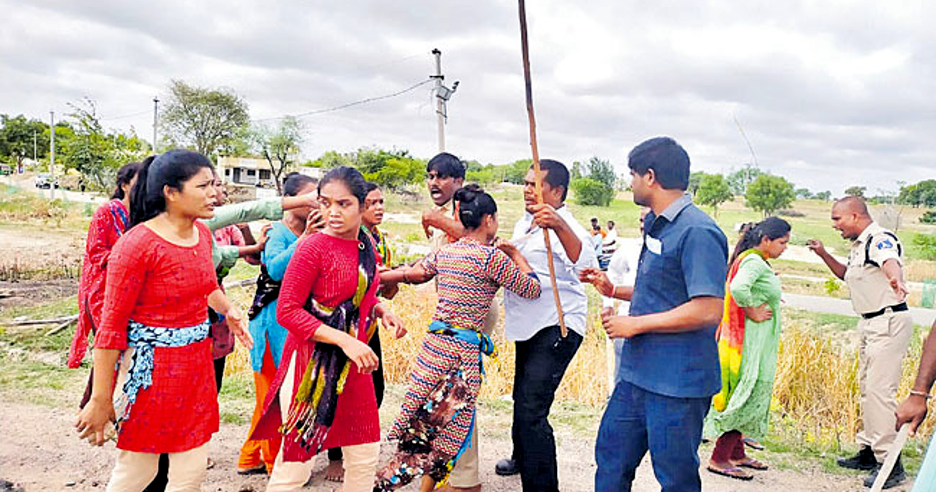India’s Supreme Court rules in favour of sex workers, and women rise up

Ultimately, not one of the 80 women managed to escape. This latest uprising of women is noteworthy for the spectacular (if curtailed) rebellion of so many detainees simultaneously. But it is not an isolated event. It follows a succession of similar uprisings, escapes, and even suicide attempts inside India's protective homes.
In 2011, a few dozen women in Hyderabad rebelled and took control of the home for three days until staff managed to subdue them. In 2012, 23 women successfully scaled the walls of a Mumbai home and were never located. In 2014, over 100 women detained near the Hyderabad airport rioted. They smashed up the premises and damaged vehicles, injuring 16 people including four staff members, but did not manage to breach the locked gates before the police arrived.
Two weeks before our first visit to a protection home in 2018, two ITPA detainees successfully escaped. One of the women we interviewed at that home had recently attempted suicide out of frustration and hopelessness – she was being detained for an unspecified period and her son was not allowed to visit. The following year, an Uzbek national ended her life inside a Prajwala home for similar reasons. The reporter Joshua Carroll wrote in The Guardian at the time that when he asked Sunitha Krishnan, Prajwala's co-founder, about the suicide, she said that Prajwala sees “at least two” suicide attempts a day.
Maneka Gandhi, former Minister of Women and Child Development (WCD), which oversees India's anti-trafficking protective homes, acknowledged to reporters in the wake of the 2018 Muzaffarpur shelter scandals that the WCD engages in very little oversight of the homes it funds. In Muzaffarpur, minors inside government-funded shelters were routinely raped and beaten by the director and others, and some were apparently murdered. Further investigations found that abuse was widespread across shelters in Bihar and Uttar Pradesh. Gandhi told a Guardian reporter, “I know there will be many more [shelter scandals] because, for years and years, we have paid no attention, apart from giving them money.”
Activists hope that the recent Prajwala uprising will become a pivotal moment for India's sex worker rights movement. Sex workers' demands are basic: to be treated as human beings; to be spared from police beatings, raids and forced protective custody; to be allowed to ply their trade as any other worker with full labour protections and state benefits; and to live with the dignity and freedom that India's Supreme Court has now directed that they deserve.
This “Eyes on Trafficking” story is reprinted from its original online location.
 ABOUT PBJ LEARNING
ABOUT PBJ LEARNING
PBJ Learning is a leading provider of online human trafficking training, focusing on awareness and prevention education. Their interactive Human Trafficking Essentials online course is used worldwide to educate professionals and individuals how to recognize human trafficking and how to respond to potential victims. Learn on any web browser (even your mobile phone) at any time.
More stories like this can be found in your PBJ Learning Knowledge Vault.
EYES ON TRAFFICKING
This “Eyes on Trafficking” story is reprinted from its original online location.
ABOUT PBJ LEARNING
PBJ Learning is a leading provider of online human trafficking training, focusing on awareness and prevention education. Their interactive Human Trafficking Essentials online course is used worldwide to educate professionals and individuals how to recognize human trafficking and how to respond to potential victims. Learn on any web browser (even your mobile phone) at any time.
More stories like this can be found in your PBJ Learning Knowledge Vault.
